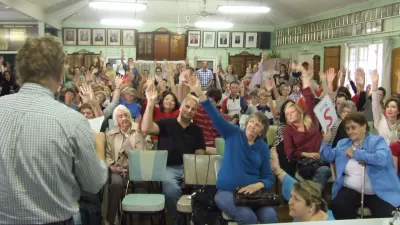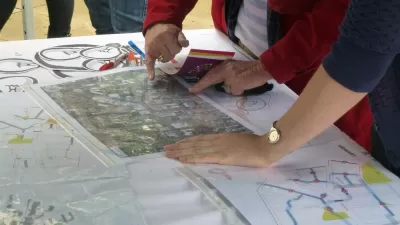The concept of surveying residents to get their take on a development may seem like a simple idea, but it is no easy task. Planner Clement Lau shares key lessons learned about conducting and creating surveys as part of the planning process.

When it comes to making decisions about what types of developments work in a particular neighborhood, who better to ask than the folks who live there?
Community surveys as part of the planning process are a key tool to help determine what elements of a project would work well in a neighborhood. However, creating a survey and getting responses are not as easy as it sounds.
“While creating a survey may sound simple, it really is not. It is much more than just coming up with some questions and then having some people answer them. Over the years, I have learned that it takes careful planning and consideration to put together a good questionnaire and implement an effective process of collecting information from our constituents.”
The first step is determining whether a survey is needed. Once a decision is made to move forward, the questions must be created.
“Good questions are clear and answerable for respondents. When crafting questions, we must have the target respondents in mind. We have to anticipate their receptivity to different types of question formats and their willingness to answer them.”
A sample group for a pretest should be formed once the survey questions are created.
“Pretesting a survey instrument with a sample of respondents is very important. Essentially, it helps us to figure out whether our questions are clear and answerable. While we as the preparer of the survey may think that it is fine, we do not really know until other people start filling it out.”
In the article, Lau outlines how to write good questions, conduct the survey, and present the findings.
FULL STORY: Surveys: Finding Out What People Want

Maui's Vacation Rental Debate Turns Ugly
Verbal attacks, misinformation campaigns and fistfights plague a high-stakes debate to convert thousands of vacation rentals into long-term housing.

Planetizen Federal Action Tracker
A weekly monitor of how Trump’s orders and actions are impacting planners and planning in America.

San Francisco Suspends Traffic Calming Amidst Record Deaths
Citing “a challenging fiscal landscape,” the city will cease the program on the heels of 42 traffic deaths, including 24 pedestrians.

Bend, Oregon Zoning Reforms Prioritize Small-Scale Housing
The city altered its zoning code to allow multi-family housing and eliminated parking mandates citywide.

Amtrak Cutting Jobs, Funding to High-Speed Rail
The agency plans to cut 10 percent of its workforce and has confirmed it will not fund new high-speed rail projects.

LA Denies Basic Services to Unhoused Residents
The city has repeatedly failed to respond to requests for trash pickup at encampment sites, and eliminated a program that provided mobile showers and toilets.
Urban Design for Planners 1: Software Tools
This six-course series explores essential urban design concepts using open source software and equips planners with the tools they need to participate fully in the urban design process.
Planning for Universal Design
Learn the tools for implementing Universal Design in planning regulations.
planning NEXT
Appalachian Highlands Housing Partners
Mpact (founded as Rail~Volution)
City of Camden Redevelopment Agency
City of Astoria
City of Portland
City of Laramie





























